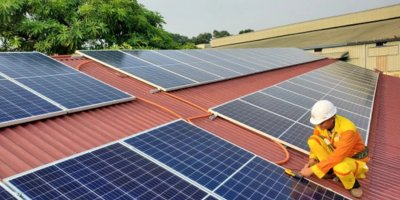As the world becomes increasingly conscious of environmental sustainability, the demand for clean and renewable energy sources is soaring. Among the most popular alternatives to fossil fuels is the solar power system, a technology that harnesses energy from the sun and converts it into electricity or heat. Whether for residential, commercial, or industrial use, solar power is emerging as a game-changer in the global energy landscape.
What is a Solar Power System?
A solar power system refers to the complete setup required to capture and convert sunlight into usable energy. The core components typically include solar panels (also called photovoltaic or PV panels), an inverter, batteries (for storage), a charge controller, and wiring. These elements work together to transform solar radiation into electricity that can power homes, businesses, and even entire communities.
There are two primary types of solar power systems:
- Grid-Tied Systems: These systems are connected to the main electricity grid. Excess energy produced can be fed back into the grid, often earning credits through net metering. When the solar panels are not producing enough energy, power is drawn from the grid.
- Off-Grid Systems: These operate independently from the electricity grid and rely on battery storage. Ideal for remote or rural areas, off-grid systems provide complete energy independence.
- Hybrid Systems: A combination of both grid-tied and off-grid, hybrid systems offer maximum flexibility. They use solar energy when available, store surplus in batteries, and draw from the grid when necessary.
Benefits of Installing a Solar Power System
1. Cost Savings:
Once installed, a solar system significantly reduces monthly electricity bills. While the upfront cost may seem high, the long-term savings and return on investment make it a financially sound choice.
2. Environmentally Friendly:
Solar energy is a clean and green source of power. It helps reduce carbon emissions, air pollution, and reliance on fossil fuels. This contributes positively to combating climate change and preserving the planet.
3. Energy Independence:
By generating their own electricity, individuals and businesses can reduce or eliminate their dependence on utility companies. This is especially beneficial during power outages or fuel price fluctuations.
4. Low Maintenance:
Solar systems require minimal maintenance. Panels need occasional cleaning and an annual inspection, but most components are durable and have a long life span, often exceeding 25 years.
5. Increased Property Value:
Homes and buildings equipped with solar energy systems often see a boost in market value. Buyers are increasingly interested in properties that come with energy-efficient upgrades.
How to Choose the Right Solar Power System
Choosing the right system depends on several factors including location, energy needs, budget, and available space. A professional installer will typically conduct a site assessment to determine the system size and orientation for optimal performance.
Key considerations include:
- Sunlight availability: Areas with more sunlight throughout the year will generate more energy.
- Roof orientation and space: South-facing roofs with minimal shading are ideal.
- Energy consumption patterns: Understanding your monthly and yearly usage helps determine the required system capacity.
- Budget and incentives: Look for government subsidies, tax credits, and financing options to reduce the initial investment.
Future of Solar Energy
The solar energy industry is continuously evolving with technological advancements. Innovations such as high-efficiency panels, smart inverters, solar tracking systems, and improved battery storage are making solar systems more accessible and efficient. With decreasing costs and increasing awareness, solar adoption is expected to accelerate globally.
Investing in solar power system solutions today ensures a sustainable and cost-effective future tomorrow.
Conclusion
Switching to a solar power system is more than a trend—it’s a responsible step toward a cleaner and more resilient energy future. By harnessing the power of the sun, individuals and businesses can cut costs, reduce their carbon footprint, and contribute to a healthier planet. Whether you’re aiming for full energy independence or simply want to lower your electricity bills, solar energy offers a practical and impactful solution.

